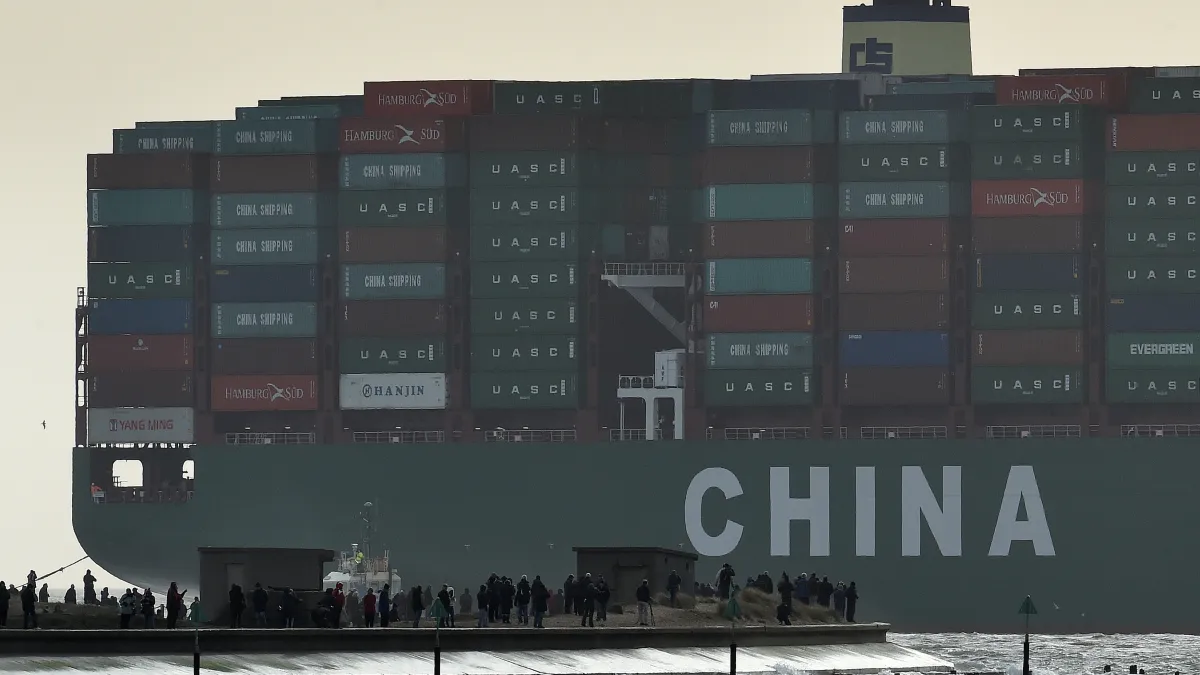
The U.S. and China have agreed to sharply reduce their aggressive tariffs for 90 days as they seek ways to defuse the burgeoning trade war sparked by President Donald Trump.
Following negotiations in Geneva, Switzerland, this past weekend, U.S. Trade Representative Jamieson Greer said the U.S. would drop its 145% tariff on most Chinese goods to 30% - a 10% base tariff plus 20% intended to pressure China to crack down on fentanyl-related exports - while China has agreed to reduce its 125% tariff on most U.S. goods to 10%. The changes will take effect on Wednesday.
In a joint statement, China and the U.S. said the pause was agreed to in a "spirit of mutual opening, continued communication, cooperation, and mutual respect."
In a separate statement, China's Ministry of Commerce said the agreement is an "important first step," while urging the U.S. to "completely rectify the mistake of unilateral tariffs [and] work together to inject more certainty and stability into the global economy."
No "generalized decoupling": Treasury Secretary Scott Bessent said Monday that the U.S. isn't looking for a complete break from one of its largest trade partners, but instead a reordering of its relationship, with the goal of boosting domestic production of key goods. "We do not want a generalized decoupling from China," he told CNBC. "But what we do want is a decoupling for strategic necessities, which we were unable to obtain during Covid and we realized that efficient supply chains were not resilient supply chains."
"We are going to create our own steel," Bessent added. "[Tariffs] protect our steel industry. They work on critical medicines, on semiconductors."
At the same time, the U.S. wants to continue to trade with China, but on a "more balanced" basis, Bessent said.
Initial reactions: Stocks surged on the news as investors celebrated even a temporary reprieve from the trade war Trump intensified on "Liberation Day" in early April, with the S&P 500 soaring 3.2% and the Dow Jones Industrial Index rising 2.8%.
"This is a substantial de-escalation," Mark Williams, chief Asia economist at Capital Economics, told the Associated Press. But the threat has not been totally defused, he warned, and "there is no guarantee that the 90-day truce will give way to a lasting ceasefire."
Harvard University economist Dani Rodrik said he was glad the two countries stepped back from "a needless trade war," but the 30% tariff on Chinese imports will still hurt U.S. consumers, for little gain. "Trump has obtained absolutely nothing from China for all the chaos he generated. Zilch," Rodrik wrote on social media.
Some analysts advised caution, given the complexity of the tax ahead for negotiators. "The US-China trade negotiations are going to be like a rollercoaster," Scott Kennedy, a China expert at CSIS, told the Financial Times. "Markets can breathe a temporary sigh of relief but we're nowhere near out of the woods."